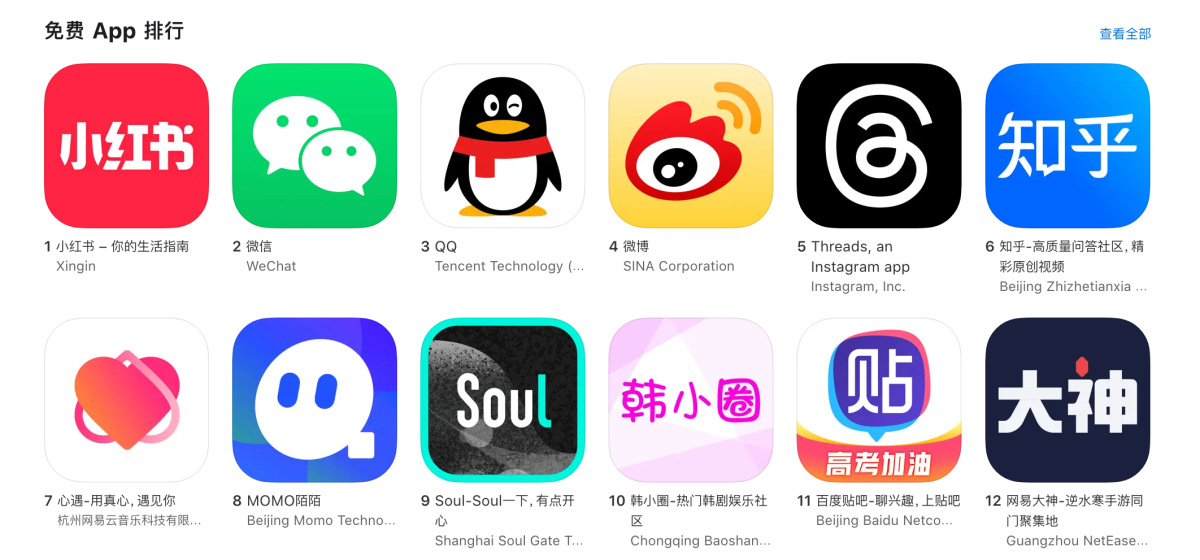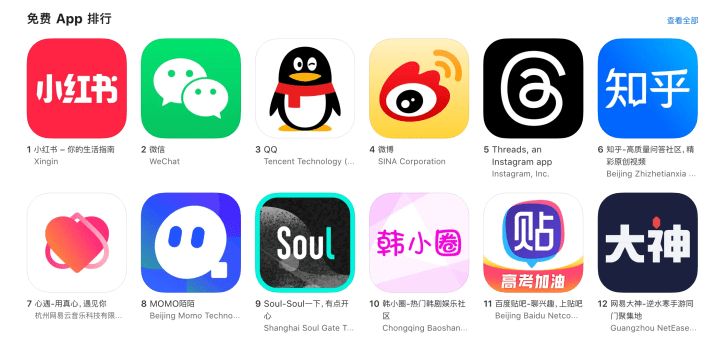
Threads app hits Top 5 on Apple’s China App Store despite ban

Threads, Meta’s new social networking platform, is quickly gaining ground in China where Western social apps from Instagram to Facebook are banned.
As of Thursday morning Pacific Time, the Twitter clone introduced by Instagram ranked fifth in the social networking category of Apple’s China App Store, just a day after launching.
That’s despite the fact that the app is blocked by the Great Firewall, meaning users in mainland China have to access the platform through a censorship circumvention tool like a VPN, or virtual private network.
App Store rankings take into account metrics like new app installs. Threads is currently trailing only after Chinese social giants with hundreds of millions of active users, namely, Xiaohongshu, WeChat (over 1 billion monthly users in its case), QQ and Weibo.
It’s unclear whether China blocked Threads at the outset. Greatfire.org, an organization that tracks online censorship, shows that the domain www.threads.net has been unavailable in China since July 4.
Threads’ presence in the China App Store isn’t all that surprising, given Facebook, Instagram and Twitter have long been available in the App Store while being banned by Great Firewall’s censorship system. It’s possible that Threads is connecting to one of Meta’s servers that are already unavailable in China.
Having Threads in the App Store also saves Apple from having to confront potential criticisms over removing apps at the bequest of Beijing, which would be a more politically charged situation than its decision to skip European Union countries for now due to data privacy complexities.
In other cases, Western social apps get on the radar of Chinese censors only after gaining significant traction. The live audio app Clubhouse, for instance, was quickly blocked and pulled from the China App Store after attracting a flood of Chinese users to freely discuss politically sensitive topics. Damus, the Jack Dorsey-backed Twitter rival built on a decentralized protocol, was removed from the China App Store for including “content that is illegal in China.”
The only legitimate way to launch a foreign social app in China is to develop a locally compliant version with strict content filters, which was what LinkedIn did. But this type of operation compromises user experience and can be expensive to maintain due to content monitoring. LinkedIn’s networking site retreated from China in 2021.
This is a developing story. Stay tuned for updates.


